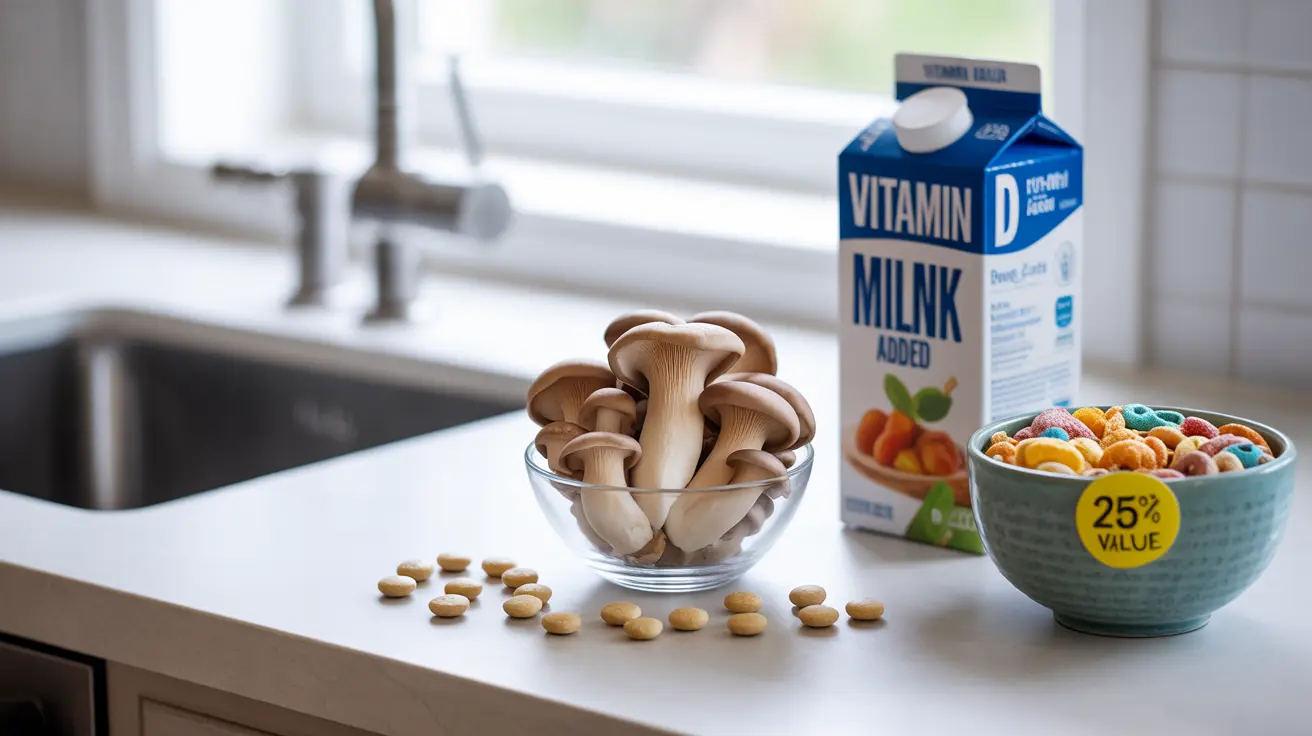Getting adequate vitamin D while following a vegan diet requires careful attention and planning. Since many traditional vitamin D sources come from animal products, vegans need to be particularly mindful of incorporating specific plant-based foods and other sources into their daily routine to maintain optimal vitamin D levels.
Understanding vegan vitamin D sources is crucial for maintaining bone health, supporting immune function, and preventing deficiency-related health issues. This comprehensive guide will explore the most effective ways for vegans to meet their vitamin D requirements through food, supplements, and natural sources.
Natural Vegan Sources of Vitamin D
While vegan vitamin D sources are limited in nature, there are several effective ways to obtain this essential nutrient:
Mushrooms: Nature's Vitamin D Powerhouse
Mushrooms exposed to UV light are one of the few natural vegan sources of vitamin D. These fungi can produce vitamin D2 when exposed to sunlight or UV radiation, similar to how human skin produces vitamin D3. Wild mushrooms typically contain more vitamin D than commercially grown varieties, though some manufacturers now specifically produce UV-treated mushrooms with enhanced vitamin D content.
Fortified Foods
Many vegan-friendly foods are fortified with vitamin D to help bridge nutritional gaps:
- Plant-based milk alternatives (soy, almond, oat)
- Fortified orange juice
- Breakfast cereals
- Tofu (some varieties)
- Nutritional yeast
Sunlight Exposure and Vitamin D Production
The body's natural ability to produce vitamin D through sunlight exposure remains one of the most important sources for vegans. However, several factors can affect this process:
- Geographical location and latitude
- Time of year and day
- Cloud cover and pollution
- Use of sunscreen
- Skin pigmentation
- Age
Supplementation Strategies for Vegans
Given the limited natural vegan sources of vitamin D, supplementation often becomes necessary, especially during winter months or for those living in less sunny climates.
Choosing the Right Supplement
When selecting a vitamin D supplement, vegans should consider:
- Vitamin D2 vs. D3 formulations
- Third-party testing certification
- Dosage requirements based on current levels
- Vegan-friendly manufacturing processes
- Additional complementary nutrients (like vitamin K2)
Special Considerations for Different Life Stages
Vitamin D needs can vary significantly throughout life, requiring different approaches for optimal intake:
Pregnancy and Nursing
Pregnant and nursing mothers following a vegan diet should pay special attention to their vitamin D intake, as requirements increase during these periods. Regular monitoring and potential adjustment of supplementation may be necessary.
Children and Adolescents
Growing children need adequate vitamin D for proper bone development and overall health. Parents should work with healthcare providers to ensure appropriate intake through a combination of fortified foods and supplements.
Frequently Asked Questions
What are the best vegan food sources of vitamin D? The best vegan food sources of vitamin D include UV-exposed mushrooms, fortified plant-based milk alternatives, fortified cereals, and fortified orange juice. Nutritional yeast and some fortified tofu products can also provide vitamin D.
How effective are vegan vitamin D3 supplements compared to vitamin D2 from mushrooms? Vegan vitamin D3 supplements are generally more effective at raising and maintaining vitamin D levels compared to D2 from mushrooms. While both forms can be beneficial, D3 tends to be more potent and longer-lasting in the body.
Can sunlight alone provide enough vitamin D for people following a vegan diet? While sunlight exposure can contribute to vitamin D production, it may not be sufficient as the sole source, especially for vegans. Factors such as geographical location, season, time of day, and skin pigmentation can significantly affect vitamin D production from sunlight.
Why is vitamin D supplementation important for vegans, especially in winter? Vitamin D supplementation becomes crucial for vegans during winter months due to reduced sunlight exposure and limited natural vegan sources. The body's ability to produce vitamin D from sunlight decreases significantly during winter, making supplementation necessary to maintain adequate levels.
How can vegans ensure they get enough vitamin D during pregnancy and childhood? Vegans can ensure adequate vitamin D during pregnancy and childhood through a combination of fortified foods, carefully selected supplements, and safe sun exposure. Regular monitoring of vitamin D levels and consultation with healthcare providers is recommended, especially during these critical life stages.




